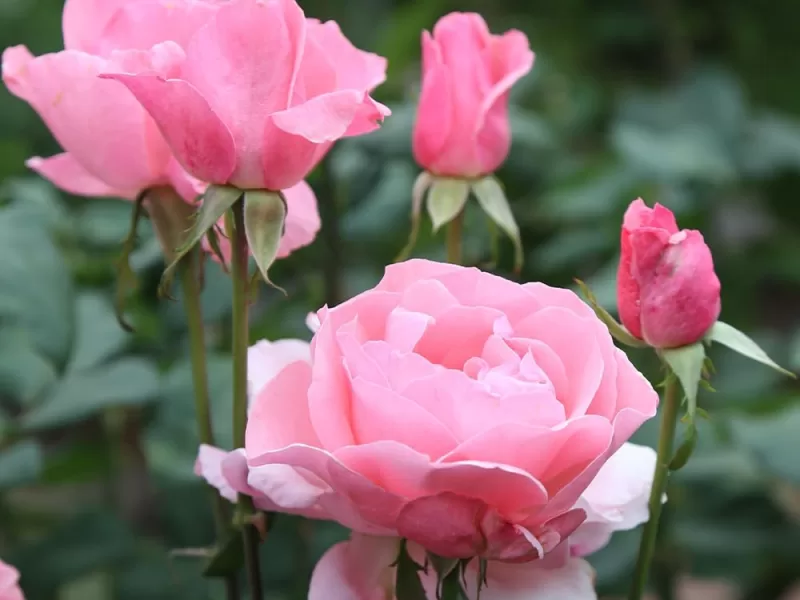Queen Elizabeth rose

Queen Elizabeth Rose: A Regal Elegance in Your Garden
Embrace the regal allure of Queen Elizabeth rose, a pink Grandiflora rose that is a testament to timeless beauty and floral sophistication. Bred by esteemed rose grower Dr. Walter Lammerts in the United States in 1954, this cultivar has achieved global acclaim, earning prestigious awards, including the coveted “World’s Favorite Rose” in 1979.
Key Highlight Characteristics:
- Name: Queen Elizabeth Rose
- Introduced: 1954
- Type: Grandiflora Rose
- Color: Pink
- Fragrance: Moderate, Sweet
- Height: 5 to 10 ft (150–200 cm)
- Spread: 3 to 4 ft (90–120 cm)
- Diameter of Blooms: 4 to 5 in (10–12 cm)
- Petals: Large, Full (26 to 40)
- Flower Form: High-Centered to Cupped
- Bloom Clusters: 3–5 flowers
- Foliage: Large, Leathery, Dark Green
- USDA Zone: 5b through 9b
Queen Elizabeth Rose has a rich history. It was named in honor of Queen Elizabeth II upon her ascension to the British throne in 1952. Bred from the hybrid tea Charlotte Armstrong and the floribunda Floradora, this rose has become a parent to 30 new cultivars. Its climbing sport, ‘Climbing Queen Elizabeth,’ introduced in 1957, remains popular among gardeners.
Awards:
- Portland Gold Medal (1954)
- All-America Rose Selections Winner, USA (1955)
- American Rose Society Gold Medal (1957)
- Golden Rose of the Hague (1968)
- World’s Favorite Rose (1979)
- Award of Excellence for Best Established Rose (2015)
Cultivation Characteristics:
‘Queen Elizabeth’ thrives in a USDA zone range of 5b through 9b, showcasing its adaptability to various climates. The rose’s ability to bloom almost continuously, coupled with its disease resistance, makes it a low-maintenance and vibrant addition to any garden. Its pale pink blooms, large clusters, and moderate, sweet fragrance contribute to its timeless appeal.
Versatile Garden Presence:
Whether standing tall in beds, enhancing borders, or gracing large patio containers, ‘Queen Elizabeth’ makes a bold statement. Its upright growth and sturdy stems make it an ideal cutting rose, perfect for creating stunning floral arrangements.
Legacy and Mutations:
Named after Queen Elizabeth II, this rose has left an indelible mark on horticulture. Over the years, mutations like ‘Yellow Queen Elizabeth’ and ‘White Queen Elizabeth’ have emerged, offering variations in color while preserving the classic characteristics of the original.
The Queen Elizabeth rose is a legacy of elegance and grace. From its rich history to its continuous blooms, this rose deserves its place as a favorite among gardeners worldwide. Planting ‘Queen Elizabeth’ is not just adding a rose to your garden; it’s inviting a touch of regality and timeless beauty to bloom in your outdoor sanctuary.
